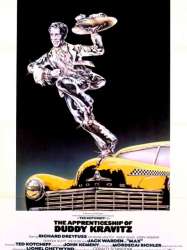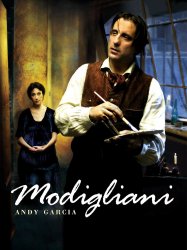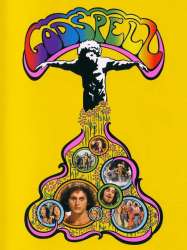Films with theme "Films about Jews and Judaism", sorted by revenue

The Abominable Dr. Phibes (1971)
, 1h34Directed by Robert Fuest
Origin United-kingdom
Genres Thriller, Comedy, Horror comedy, Fantasy, Horror
Themes Films set in Africa, Films about religion, Serial killer films, Zombie films, Films based on the Bible, Films about Jews and Judaism, Comedy horror films
Actors Vincent Price, Joseph Cotten, Terry-Thomas, Peter Jeffrey, Virginia North, John Gilmore
Dr. Anton Phibes (Vincent Price) was an expert in theology and music who was supposedly killed in a car crash in 1921, shortly after the death of his beloved wife, Victoria, during an operation. However, he survived the crash, horribly scarred by the accident and left unable to speak, forcing him to remake his face with prosthetics and use his knowledge of acoustics to regain his voice. Resurfacing in 1925, Phibes believes that his wife died a victim of incompetent doctors, and begins elaborate plans to kill them.

The Man Who Cried (2000)
, 1h40Directed by Sally Potter
Origin United-kingdom
Genres Drama, War, Musical, Romance
Themes Films about religion, Films about Jews and Judaism
Actors Christina Ricci, Cate Blanchett, Johnny Depp, John Turturro, Iva Bittová, Harry Dean Stanton
Fegele Abramovich (Christina Ricci), a Russian Jew is separated from her father (Oleg Yankovsky) as a child in 1927. Her father has travelled to America to seek his fortune and plans to send for Fegele and her grandmother. Before leaving, he sings "Je Crois Entendre Encore" from the Bizet opera Les pêcheurs de perles to her. After her father leaves, the village is attacked and burned in a pogrom. Fegele escapes with the help of neighbours; after many obstacles, she is crowded onto a boat headed for Britain, with only a photo of her father and a coin given to her by her grandmother.

Son of Saul (2015)
, 1h47Directed by László Nemes
Origin Hongrie
Genres Drama, War, Thriller, Horror
Themes Films about religion, Political films, Films about Jews and Judaism
Actors Géza Röhrig, Levente Molnar, Urs Rechn, Sándor Zsótér, András Jeles
It is early October, 1944. Saul Ausländer (Géza Röhrig), a Hungarian-Jewish prisoner in Auschwitz works as a Sonderkommando member, burning the dead. One day he finds the body of a boy he takes for his son. He tries to salvage the body from the flames, and find a rabbi to arrange a clandestine burial. Meanwhile other members of the Sonderkommando learn about their impending extermination, rise up and destroy the crematorium. Saul keeps focused on his own plan to pay the last honours to a son he never could take care of before.

Fill the Void (2012)
, 1h30Directed by Rama Burshtein
Origin Israel
Genres Drama
Themes Films about religion, Films about Jews and Judaism
Actors Hadas Yaron
Shira Mendelman, an 18-year-old Haredi girl living in Tel Aviv, is looking forward to an arranged marriage with a young man whom she likes. However, on Purim, her family suffers a tragedy when Shira's older sister Esther dies in childbirth. Shira's father subsequently delays the engagement so as not to have to deal with an empty house so soon after Esther's death. Esther's husband, Yochay, begins to regularly bring their son, Mordechai, to the Mendelman's house, where Shira cares for him.

American Pastoral (2016)
, 1h48Directed by Fisher Stevens, Ewan McGregor
Origin USA
Genres Drama, Crime
Themes Films about religion, Films about Jews and Judaism
Actors Mandy Patinkin, Dakota Fanning, Dan Hedaya, Jennifer Connelly, Ewan McGregor, Rupert Evans
En 1996, lors de la 45e réunion de la promotion 1951 du lycée Weequahic à Newark, dans le New Jersey, l'écrivain Nathan Zuckerman rencontre l'un de ses anciens amis, Jerry Levov. Les deux hommes parlent du frère aîné de Jerry, Seymour Levov dit Le Suédois, ancien athlète de son lycée (promotion 1944), récemment décédé des suites d'une longue maladie et que Zuckerman admirait.
 , 2h
, 2hDirected by Ted Kotcheff
Origin Canada
Genres Drama, Comedy, Comedy-drama
Themes Films about religion, Films about Jews and Judaism
Actors Richard Dreyfuss, Micheline Lanctôt, Jack Warden, Randy Quaid, Joseph Wiseman, Denholm Elliott
Duddy Kravitz (Richard Dreyfuss) is a brash, restless young Jewish man growing up poor in Montreal, Canada. His taxi driver father Max (Jack Warden) and his rich uncle Benjy (Joseph Wiseman) are very proud of Duddy's older brother Lenny, whom Benjy is putting through medical school. Only his grandfather (Zvee Scooler) shows the motherless Duddy any attention.

The Producers (1968)
, 1h30Directed by Mel Brooks
Origin USA
Genres Comedy, Musical
Themes Films about religion, Films about sexuality, Théâtre, LGBT-related films, Musical films, Political films, Films about Jews and Judaism, LGBT-related films, LGBT-related film
Actors Zero Mostel, Gene Wilder, Kenneth Mars, Dick Shawn, Estelle Winwood, Renee Taylor
Max Bialystock (Zero Mostel) is a washed-up, aging, and also fraud and corruptible greedy Broadway producer who ekes out a living romancing lascivious wealthy elderly women in exchange for money for his next play. Accountant Leopold "Leo" Bloom (Gene Wilder) arrives at Max's office to do his books and discovers there is a $2,000 discrepancy in the accounts of Max's last play. Max persuades Leo to hide the relatively minor fraud, and, while shuffling numbers, Leo has a revelation: a producer could make a lot more money with a flop than a hit, by overselling the shares in the production as no one will audit the books of a play presumed to have lost money. Max immediately puts this scheme into action. They will over-sell shares on a massive scale, and produce a play that will close on opening night, thus avoiding a pay-out and leaving the duo free to flee to Rio de Janeiro with the profits. Leo is afraid such a criminal venture will fail and they will go to prison, but Max eventually convinces him that his drab existence is no better than prison.

Marci X (2003)
, 1h24Directed by Richard Benjamin
Origin USA
Genres Comedy, Romantic comedy
Themes Dance films, Films about music and musicians, Films about religion, Hip hop films, Musical films, Films about Jews and Judaism
Actors Lisa Kudrow, Damon Wayans, Andrew Keenan-Bolger, Charles Kimbrough, Jane Krakowski, Richard Benjamin
Marci Feld, juive américaine, doit prendre la direction du label rap hardcore Felony Assault de son père Ben, celui-ci ayant subi une crise cardiaque en raison de la controverse entourant le titre Shoot Ya' Teacha de Dr. S. Pour sauver son père de la faillite, Marci tente de ramener le rappeur à plus de raison et d'adoucir son image de mauvais garçon. Au fil du temps, une relation amoureuse s'installe entre les deux protagonistes. Mais la sénatrice conservatrice Mary Ellen Spinkle promet de bannir des ondes le Dr S et ses paroles outrageuses pour toujours.

Modigliani (2004)
, 1h54Directed by Mick Davis
Genres Drama, Romance
Themes Peinture, Films about religion, Films about Jews and Judaism
Actors Andy García, Elsa Zylberstein, Hippolyte Girardot, Omid Djalili, Eva Herzigova, Susie Amy
Set in Paris in 1919, this biopic presents the life of Italian artist Amedeo Modigliani, centering, artistically, on his relationship to and rivalry with Pablo Picasso when they both lived in Paris. Modigliani, an Italian Jew from Livorno, has fallen in love with Jeanne, a young and beautiful French Catholic girl. The couple has a child, and Jeanne's bigoted father sends the baby to a faraway convent to be raised by nuns. Modigliani is distraught but needs money to rescue and raise his child. Paris' annual art competition is in the offing. Prize money and a guaranteed career await the winner.

The Shop on Main Street (1965)
, 2h5Directed by Ján Kadár, Elmar Klos
Origin Tchecoslovaquie
Genres Drama, War
Themes Films about religion, Political films, Films about Jews and Judaism
Actors Ida Kamińska, František Zvarík, Juraj Herz, Ivan Palúch
During World War II, a mild-mannered Slovak carpenter Anton "Tóno" Brtko (Jozef Kroner) is offered the chance to take over the sewing notions store of an old, near-deaf Jewish woman Rozália Lautmannová (Ida Kamińska) as a part of the enactment of an Aryanization regulation in the town. As Tóno attempts to explain to Mrs. Lautmannová, who is oblivious of the world outside and generally confused, that he has come to be her supervisor and owner of the store, Imrich Kuchár (Martin Hollý, Sr.), a Slovak opponent of Aryanization, steps in and reveals to Brtko that the business itself is less than profitable, as Lautmannová herself relies on donations. The Jewish community then offers the amiable Brtko a weekly payment if he does not give up the store, which would otherwise be given to a new, possibly ruthless Aryanizer. Tóno accepts and lets Mrs. Lautmannová believe he is her nephew who has come to help in the store. Their relationship grows, until the authorities round up the town's entire Jewish population for transport, and Tóno finds himself conflicted as to whether he should turn in the senile Mrs. Lautmannová, or hide her. When the woman finally becomes aware of the "pogrom" all around her, she panics, and in attempting to silence her, Tóno accidentally kills her. The realization devastates him, and he hangs himself.

Ajami (2009)
, 1h58Origin Israel
Genres Drama, Crime
Themes Films set in Africa, Films about religion, Political films, Films about Jews and Judaism, Gangster films
The film contains five story lines, each of which is presented in a non-chronological fashion. Some events are shown multiple times from varying perspectives. A young Israeli Arab boy, Nasri, who lives in the Ajami neighborhood of Jaffa, narrates the film.

The Believer (2001)
, 1h42Directed by Henry Bean
Origin USA
Genres Drama
Themes Films about racism, Films about religion, Skinheads, Political films, Films about Jews and Judaism
Actors Ryan Gosling, Billy Zane, Theresa Russell, Glenn Fitzgerald, Summer Phoenix, Garret Dillahunt
Daniel Balint is a former Jewish yeshiva student, brilliant but troubled, who is now a fanatically violent Neo-Nazi in New York in his early 20s. As a child, he often challenged his teachers with unorthodox interpretations of scripture. He once argued that the Binding of Isaac was not about Abraham's faith but God's power: that God did not want Abraham to accomplish a particular task but instead asks unquestioning obedience, which Abraham refuses to give. He concluded that God is a bully.

Crossfire (1947)
, 1h26Directed by Edward Dmytryk
Origin USA
Genres Drama, Thriller, Noir, Crime
Themes Films about religion, Films about Jews and Judaism
Actors Robert Young, Robert Mitchum, Robert Ryan, Gloria Grahame, Paul Kelly, Sam Levene
After he's called in to investigate the brutal killing of Joseph Samuels (Sam Levene), who was found dead at his home, police investigator Finlay (Robert Young) discovers there may be a murderer among a group of demobilized soldiers, who had been seen with Samuels and his female friend at a hotel bar that night.

Lebanon (2009)
, 1h32Directed by Samuel Maoz
Origin Israel
Genres Drama, War
Themes Films set in Africa, Films about religion, Political films, Films about Jews and Judaism
Actors Itay Tiran, Oshri Cohen, Michael Moshonov, Reymond Amsalem, Ashraf Barhom, Abdallah El Akal
The film depicts warfare as witnessed exclusively from the inside of a tank. The crew's window to the outside world is a gunsight. As a way of adding realism to the effect, every change in the horizontal and vertical viewing directions is accompanied by the hydraulic whine of the traversing gun turret. The film is set during the 1982 Lebanon War. There are four Israeli soldiers inside: the driver in the tank's hull, the loader, the gunner and the commander in the turret. For part of the time there is also the body of a dead Israeli soldier (kept there until it is airlifted away), a Syrian POW, a visiting higher officer, and a visiting Phalangist (Lebanese Maronite Catholic allied with Israel) who threatens the POW with torture and a gruesome death.

Godspell (1973)
, 1h43Directed by David Greene
Origin USA
Genres Comedy, Musical
Themes Films set in Africa, Films about religion, Musical films, Films based on the Bible, Films about Jews and Judaism, Films based on plays, Films based on musicals, Portrayals of Jesus in film
Actors Victor Garber, David Haskell, Lynne Thigpen, Merrell Jackson, Gilmer McCormick, Jeffrey Mylett
The structure of the musical is, in large part, retained: a series of parables from the gospel of Matthew, interspersed with musical numbers. Many of the scenes take advantage of well-known sites around an empty, still New York City. John the Baptist gathers a diverse band of youthful disciples to follow and learn from the teachings of Jesus. These disciples then proceed to form a roving acting troupe that enacts Jesus's parables through the streets of New York. They often make references to vaudeville shtick.
 Connection
Connection